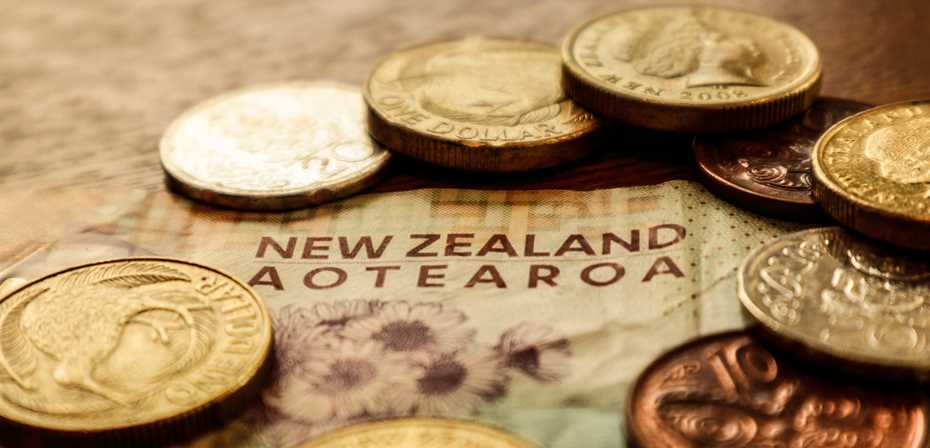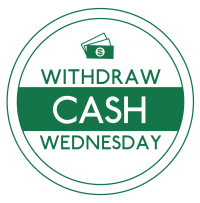
Who holds Cash and Why? A New Zealand example.
Wednesday, July 24, 2019
View ShowroomA recent report from New Zealand indicates that increases in cash holding are not related to cash transaction numbers (Reserve Bank of New Zealand Issue Paper - The future of cash use). But if this is the case how do we explain the fact that cash holdings in New Zealand continue to increase? Who holds this cash and why? To what extent is cash held as a store of value and how is tourism a factor?

One indicator that cash is being held other than for transaction purposes is the denomination of the notes held, as notes held for transaction purposes tend to be of lower denomination.
In a country with a population of 4.8 million, tourism accounts for around 6 percent of GDP. According to Statistics NZ, annual international tourism expenditure is $39.1 billion or $107 million per day and cash is widely used. The report indicates that whereas total note exports as a percentage of annual note issue were 6 percent in 2013 in 2017 the equivalent figure is 32 percent. Cash usage among tourists is important and this has implications for any move towards a cashless society.
There is evidence that cash usage for transactions is declining in New Zealand. According to the Reserve Bank report:
- 11 percent of the adult population use cash on a daily basis
- 38 percent use cash for transactional purchases three or more times a week
- people aged over 60 account for 41 percent of cash holdings for transactional purposes.
So if transaction numbers are declining is a cashless society inevitable, what are its implications and where there are negative outcomes how can these be avoided? In many respects the report's findings reflect those of the UK 's Independent Access to Cash Review raising a number of key issues:
- Though cash holdings continue to increase, transactions are declining
- As the average cost of cash transactions increases will this lead to actions that trigger a further reduction?
- Can we identify those at risk if New Zealand moves to a cashless society?
- How important a sector is the 'unbanked' in New Zealand?
The report examines the potential of what we might term a downward spiral for the cash network. 'As the transactional demand for cash falls, the per transaction cost of providing cash infrastructure increases'. Could a situation be reached where operators stop accepting and issuing cash?
'It is possible that the volume of cash used to purchase goods and services will fall to a point where retailers find that losing some cash sales would be less costly than installing or maintaining cash infrastructure '.
Is there a real danger of a contraction of the cash network and what would be its impact? The report states that there could be a significant disadvantage for 'people who rely on the unique role cash plays in their lives'.
So how would a decline in cash availability affect society and particularly those described as financially and digitally excluded? On the one hand, only 1 percent of adults do not have a bank account but does this understate the potential problem? Another interesting statistic was that 4 percent of those surveyed had used only cash in the previous seven days and 37 percent held cash 'just in case it was needed'.
We should also note the link between digital and financial exclusion in the context of a society with less cash. Barriers to digital inclusion such as lack of internet coverage, skill shortage and lack of confidence are highlighted in the report and it notes there are particular issues for disabled people and seniors as well as immigrants. It also explains that in 2013, 33 percent of the Maori population did not have access to the Internet.
In New Zealand there is a recognition that a movement to 'less cash' will have significant impact on particular groups. The Reserve Bank also notes that 'all members of society will lose the freedom and autonomy that cash provides, be more exposed to cyber threats and lose the ability to use cash as a back-up form of payment'.
So what happens next? The report comes in 'the middle of a multi-year programme'. There is a recognition of the risks of a transition to a cashless or 'less cash' society. If it is recognised that cash continues to have an important role then what implications does this have for the way payments are processed? The Reserve Bank has called for responses and recognises that government action could be recommended.
Read the full article from Glory Global Solutions here.
 The Withdraw Cash Wednesday campaign is designed to promote consumer cash usage by reminding consumers to withdraw cash from the ATM the Wednesday before the U.S. Thanksgiving holiday for their Christmas Black Friday shopping needs and every Wednesday for their weekend endeavors. Backed by ATMIA, the campaign is also designed to educate consumers about the benefits of cash such as using it as a budgeting tool, reducing debt and saving money by not having to pay credit card interest fees and saving time at the checkout.
The Withdraw Cash Wednesday campaign is designed to promote consumer cash usage by reminding consumers to withdraw cash from the ATM the Wednesday before the U.S. Thanksgiving holiday for their Christmas Black Friday shopping needs and every Wednesday for their weekend endeavors. Backed by ATMIA, the campaign is also designed to educate consumers about the benefits of cash such as using it as a budgeting tool, reducing debt and saving money by not having to pay credit card interest fees and saving time at the checkout.
You can learn more about WCW by visiting the website and cash blog.
Additional Resources from ATM Industry Association
- 4/18/2024 - 3 myths about accepting cash at self service
- 4/18/2024 - Upcoming ATMIA/ASA Committee Meetings: April and May 2024
- 4/18/2024 - ATMIA Joins Atlanta Fed Meeting on Best Practices for ATM Cash Replenishment
- 4/18/2024 - Cryptocurrency Legislation at the State Level Still Outpacing Other Types of Legislation
- 4/18/2024 - Moving ATMs Into the Future with Cash Recycling
- Show All ATM Industry Association Press Releases / Blog Posts



























